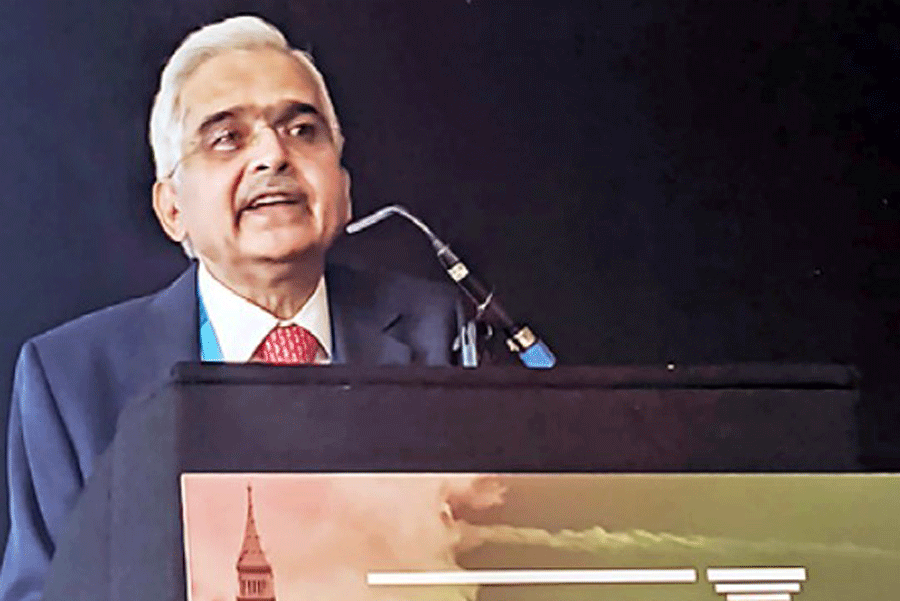Reserve Bank of India (RBI) governor Shaktikanta Das on Tuesday said the disinflation process is likely to be slow and a protracted one and the convergence to the mandated target of 4 per cent will happen only in the medium-term.
Das reiterated the pause in the rates taken by the monetary policy committee (MPC) of the RBI at its April and June meetings is not a pivot and does not signal a change in policy direction.
He was speaking in London at an event organised by the publication, Central Banking.
Last week, Das said there was no room for complacency for policymakers even though retail inflation fell to 4.7 per cent in April from 6.4 per cent in March. He was speaking after MPC kept the policy repo rate unchanged at 6.50 per cent. Retail inflation has fallen further to 4.25 per cent in May.
His comments led to economists speculating of an extended pause with an interest rate cut happening only at the end of this calendar year or next year. Earlier, some analysts had felt that a cut will happen as early as October.
``The cumulative impact of our monetary policy actions over the last year is still unfolding and yet to materialise fully. While our inflation projection for the current financial year 2023-24 is lower at 5.1 per cent, it would still be well above the target," Das said in London.
"As per our current assessment, the disinflation process is likely to be slow and protracted with convergence to the inflation target of 4 per cent being achieved over the medium-term.’’
He said MPC decided on a rate pause because disinflation will happen over time and alsoto assess the impact of its past actions.
Das, however, clarified unequivocally that it is ``not a pivot – not a definitive change in policy direction’’.
He said since explicit guidance in a rate-tightening cycle is inherently fraught with risks, the MPC has avoided from providing any guidance on the timing and level of the terminal rate.
On growth, Das said the Indian economy showed resilience after the pandemic and rebounded strongly from a contraction of 5.8 per cent in 2020-21 to a growth of 9.1 per cent in 2021-22 and 7.2 per cent in 2022-23.
He said proactive and co-ordinated responses of fiscal and monetary policies nurtured a quick recovery. ``Looking ahead, we expect real GDP to grow by 6.5 per cent during 2023-24."
Various structural reforms in banking, digitalisation, taxation, manufacturing and labour have led the foundations for sustainable growth in the future, he said.











